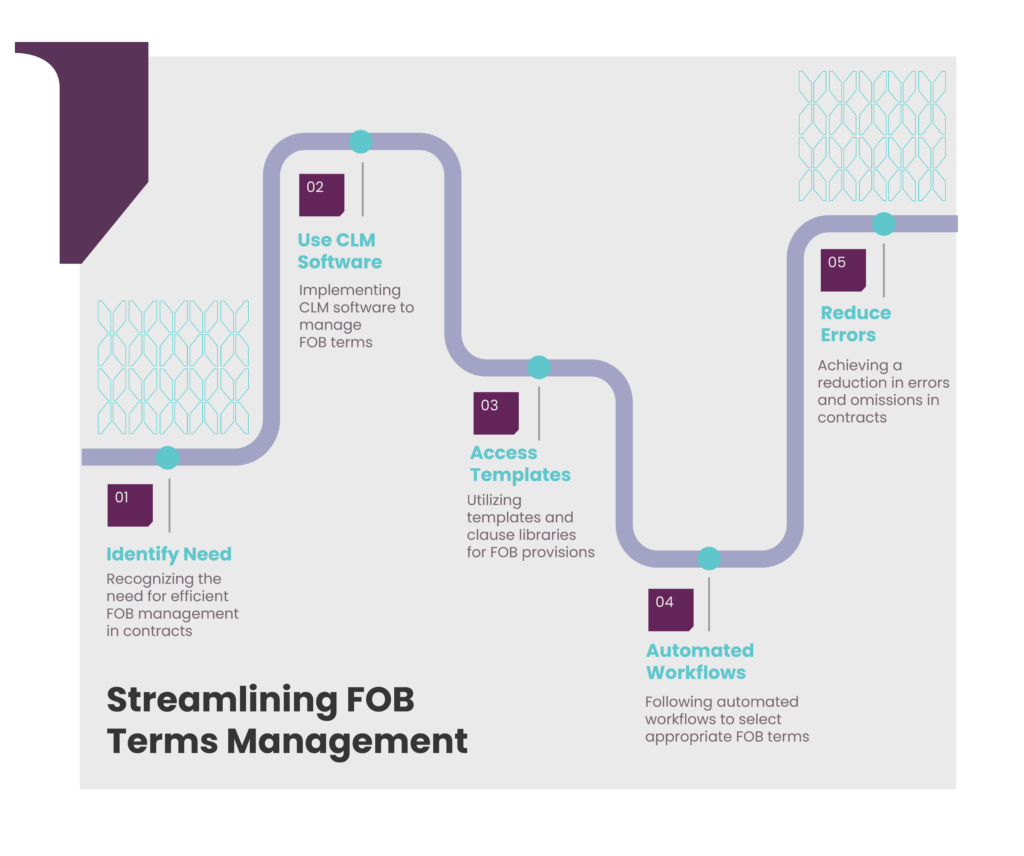The Digital Evolution of Carrier Contract Management: Automate, Analyze, and Optimize
Logistics contracts: the foundation of your transportation and logistics operations. But with so many moving parts – from varying contract types and complex clauses to fluctuating market conditions – it’s easy to feel overwhelmed. You might find yourself asking, “How can I make sure my carrier contracts are saving me money, driving performance, and keeping me compliant?”
Well, buckle up because the answer is simpler than you think. By leveraging cutting-edge technology and data analytics, you can transform the way you manage your carrier contracts and take your business to new heights.
Common Types of Carrier Contracts
Various contracts govern the relationships between shippers, carriers, and other parties involved in the movement of goods. Understanding these different contract types is crucial for effective carrier contract management. Let’s explore the most common types of contracts used in the industry.
Carrier Agreements
Think of carrier agreements (also known as transportation contracts) as the playbook for your relationship with shippers and carriers — they set the rules and expectations upfront. These contracts outline the terms and conditions under which the carrier will provide transportation services to the shipper. Key components of a carrier agreement include payment terms, such as invoice frequency and payment due dates, as well as liability provisions that specify the extent of the carrier’s responsibility for any loss or damage to the cargo. Service expectations, including pickup and delivery windows, are also defined in these agreements.
Rate Confirmations
Rate confirmations are legally binding documents that establish the agreed-upon shipping rates between shippers and carriers. These contracts ensure that carriers cannot charge more than the specified rates and that shippers are obligated to pay the agreed-upon amount for the transportation services provided. Rate confirmations often cover a specific period, allowing for predictable pricing and budgeting. They provide a clear understanding of the costs associated with shipping goods from origin to destination.
Load Tenders
Load tenders play a vital role in providing detailed information about each shipment. These documents contain essential details such as the consignee’s address, contact information, and any special delivery instructions. They also include specifications about the freight itself, such as weight, dimensions, and any special handling requirements. Carriers use these logistics contracts to ensure they have the necessary information to successfully transport and deliver the shipment to its intended recipient.
Accessorial Contracts
Accessorial contracts outline additional charges that may apply beyond the base transportation rates. These charges cover services or circumstances that fall outside the standard scope of the carrier agreement. Common accessorial charges include detention fees for delays in loading or unloading, fuel surcharges to account for fluctuations in fuel prices, and specialized equipment or handling fees for unique cargo requirements. By clearly defining these potential additional costs, these transport contracts help shippers budget accurately and avoid unexpected expenses.
Bills of Lading
Bills of lading (BOLs) serve as critical legal documents in the transportation process. They act as evidence of the contract of carriage between the shipper and the carrier, outlining the terms and conditions of the shipment. BOLs also function as a receipt, confirming that the carrier has received the goods in good condition. Furthermore, they serve as a document of title, representing ownership of the goods being transported. BOLs are essential for tracking shipments, facilitating payment, and resolving any disputes that may arise during the transportation process.
Now that we’ve covered the key types of carrier contracts, let’s talk about the real challenge: actually managing them without losing your mind and ensuring smoother communication between parties. Effective management of these contracts, often facilitated by contract freight management software or transportation contract management solutions, is key to optimizing the transportation process, reducing costs, and mitigating risks in the supply chain.
Challenges in Managing Logistics Contracts
Picture this: you’re sitting at your desk, surrounded by stacks of paper contracts, trying to make sense of it all. Sound familiar? If you’re nodding your head right now, you’re not alone. Managing logistics contracts can be a real headache, especially when you’re dealing with multiple carriers and a ton of different contract types. From limited visibility to non-compliance risks and missed opportunities, there are plenty of challenges that can trip you up along the way. Let’s dive a little deeper into these common pitfalls.
Limited Contract Visibility
Ever spent hours hunting for a contract buried in an email chain or a forgotten folder? That’s the nightmare of decentralized contract storage. When contracts are scattered across various departments, filed away in different cabinets, or even worse, existing only in email chains, it can be a nightmare to track them down when you need them. Imagine trying to find a specific rate confirmation from three years ago, only to spend hours digging through old files and folders. Or picture yourself scrambling to locate a carrier agreement just minutes before a crucial meeting with a new partner.
This limited visibility makes it tough to stay on top of renewals, amendments, and compliance checks, leading to missed deadlines and potential legal troubles. For instance, let’s say you have a contract with a carrier that automatically renews unless you give 60 days’ notice. If that contract is buried in a pile of paperwork somewhere or on the hard drives of multiple colleagues, you might not realize it’s up for renewal until it’s too late, leaving you stuck with unfavorable terms for another year.
Non-Compliance and Missed Opportunities
Another major challenge in managing carrier contracts is the risk of non-compliance. When you’re dealing with a multitude of contracts, each with its own set of terms and conditions, it’s easy to let a few things slip. But even a small oversight can lead to big problems down the road.
Let’s say you have a carrier agreement that requires you to meet certain minimum volume requirements each month. If you’re not carefully tracking your shipments against that agreement, you could end up falling short and facing financial penalties or even contract termination.
But non-compliance isn’t the only risk you face when managing carrier contracts. You could also be missing out on opportunities to save money or improve performance. For instance, imagine you have a contract with a carrier that offers a 10% discount on shipments over a certain weight threshold. If you’re not keeping a close eye on your shipping data, you might not realize that you’re consistently hitting that threshold and missing out on those savings.
Another common example is having a carrier that consistently delivers shipments late or damages your goods in transit. If you’re not regularly reviewing their performance against your contract terms, you might not realize that you have grounds to renegotiate your rates or even terminate the agreement altogether.
These are just a few examples of the many challenges that can arise when managing carrier contracts. And as your business grows and your shipping needs become more complex, these challenges will only become more pronounced. That’s why it’s so important to have a solid strategy in place for staying on top of your contracts and avoiding these common pitfalls.
Free On Board Terminology in Carrier Contracts
Free On Board (FOB) is a shipping term that defines who is responsible for goods at different points in transit. If not tracked properly in contracts, they can lead to unexpected costs and disputes.
The two most common types of FOB terms are FOB Origin and FOB Destination:
- FOB Origin: The seller’s responsibility ends once the goods are loaded onto the designated vessel at the specified port of shipment. From that point onward, the buyer bears the risk and cost of transportation.
- FOB Destination: The seller remains responsible for the goods until they reach the specified destination, at which point the risk and ownership transfer to the buyer.
Clearly defining FOB terms in carrier contracts is crucial to avoid misunderstandings and potential disputes between parties. These terms directly impact the allocation of costs, such as freight charges, insurance, and customs duties, depending on the agreed-upon FOB point. For example, if the contract specifies FOB Origin, the buyer will be responsible for paying the freight charges and insurance from the port of shipment to the final destination.
Streamlining Carrier Contract Management with CLM Software
From a centralized repository to automated workflows and real-time performance monitoring, CLM software empowers organizations to take control of their carrier contracts and drive better business outcomes.
Centralized Contract Repository
One of the key benefits of implementing a CLM solution for carrier contract management is the creation of a centralized contract repository. This secure, cloud-based platform serves as a single source of truth for all carrier contracts and related documents, ensuring easy access and visibility for authorized users across the organization.
With a well-organized contract repository, transportation and logistics teams can quickly search, retrieve, and manage contracts, regardless of their location. Advanced search capabilities, such as keyword search and metadata filtering, enable users to locate specific contracts or clauses efficiently. This centralized approach eliminates silos, improves collaboration, and facilitates better decision-making.
Malbek offers a user-friendly interface and robust security features, including role-based access controls, audit trails, and secure backups, to protect sensitive contract data while enabling seamless collaboration among stakeholders.
Managing FOB Terms with CLM Software

To streamline the management of FOB terms in carrier contracts, CLM software offers valuable tools and features. These solutions provide templates and clause libraries that ensure the accurate and consistent inclusion of FOB provisions in contracts. Furthermore, automated workflows within CLM software can guide users through the process of selecting and incorporating the appropriate FOB terms based on the specific requirements of each shipment, reducing the risk of errors and omissions.
Automated Contract Creation and Approval Workflows
Freight contract management solutions make the contract creation process easier, quicker, and more transparent by offering pre-approved contract templates and clause libraries specifically tailored for the transportation and logistics industry. These features ensure consistency, reduce errors, and accelerate the drafting process. Legal teams can create standardized templates that incorporate best practices, legal requirements, and organizational policies, while clause libraries provide a repository of pre-approved clauses that can be easily inserted into contracts.
CLM software adapted to the industry’s standard, also known as carrier contract management software, automates the contract approval process, eliminating manual handoffs and reducing cycle times. Malbek’s highly configurable workflows adapt to each organization’s unique approval hierarchies and protocols, ensuring that the right stakeholders are involved at the right time. Automated reminders and notifications keep everyone informed of pending tasks and deadlines, enhancing accountability and compliance.
The system supports parallel and serial approvals, out-of-office delegations, and conditional routing logic, allowing organizations to tailor workflows to their specific needs. Integration with electronic signature solutions further streamlines the contract execution process, ensuring legal enforceability and reducing paper-based processes.
Real-Time Contract Performance Monitoring
CLM software empowers transportation and logistics companies to track contract milestones, compliance, and performance metrics in real-time. With automated alerts and notifications, teams can stay on top of key dates, such as expiration and renewal deadlines, ensuring proactive management and minimizing the risk of missed opportunities or non-compliance.
Malbek’s CLM solution provides robust performance tracking capabilities, allowing organizations to monitor carrier performance against contractual obligations. Key performance indicators (KPIs) can be defined and tracked within the platform, providing real-time insights into carrier performance, delivery timelines, and quality metrics. This visibility enables teams to identify areas for improvement, address potential issues proactively, and ensure value realization.
Freight contract management software offers powerful analytics and reporting features, enabling organizations to gain deep insights into their carrier contract data. Interactive dashboards and customizable reports provide real-time visibility into contract status, expiration dates, carrier performance, and financial obligations. These insights empower transportation and logistics leaders to make data-driven decisions, optimize contract terms, and drive continuous improvement in their contract management processes.
Seamless integration with existing enterprise systems, such as transportation management systems (TMS) and enterprise resource planning (ERP) platforms, ensures a smooth flow of data and eliminates manual data entry. This integration enables organizations to leverage contract data across their operations, enhancing efficiency and reducing errors.
Optimizing Carrier Relationships with Contract Analytics
By leveraging the power of data and advanced analytics tools, organizations can gain deep insights into carrier performance, identify areas for improvement, and make informed decisions when selecting and managing carriers. CLM software with robust analytics capabilities empowers companies to:
- Uncover cost-saving opportunities hidden within complex contract data
- Evaluate carrier performance based on key metrics and benchmarks
- Identify trends and patterns that can guide strategic decision-making
- Strengthen negotiation positions and secure more favorable terms and conditions
Identifying Cost-Saving Opportunities
One of the most significant benefits of contract analytics is the ability to uncover cost-saving opportunities that might otherwise go unnoticed. By analyzing vast amounts of contract data, procurement teams can identify areas where they can reduce expenses and improve their bottom line. Some common cost-saving opportunities that contract analytics can reveal include:
- Identifying instances of overpaying for transportation services compared to market rates or industry benchmarks
- Discovering opportunities for consolidating shipments to reduce overall transportation costs and improve efficiency
- Pinpointing accessorial charges that can be minimized through process improvements or contract negotiations
- Highlighting potential cost savings from optimizing routing, mode selection, or carrier mix
For example, contract analytics may reveal that an organization is consistently paying higher rates for certain lanes or services compared to industry averages. Armed with this information, procurement teams can engage in data-driven negotiations with their carriers to secure more competitive rates, resulting in significant cost savings over time. Similarly, by analyzing contract data alongside shipping patterns and volumes, organizations can identify opportunities to consolidate shipments, reducing transportation costs and optimizing carrier capacity utilization.
Contract analytics can also help organizations uncover hidden costs associated with accessorial charges, such as detention fees, fuel surcharges, or special handling requirements. By monitoring these additional costs and understanding their impact on overall transportation spending, companies can identify areas where process improvements, operational changes, or contract negotiations can help minimize or eliminate these expenses.
Evaluating Carrier Performance
Contract analytics plays a crucial role in evaluating carrier performance and making informed decisions when selecting and managing carriers. By analyzing contract data alongside a range of key performance indicators (KPIs), organizations can gain a holistic view of each carrier’s strengths, weaknesses, and overall value proposition. Some essential KPIs that contract analytics can help track and evaluate include:
- On-time delivery rates and transit times
- Damage and loss rates for shipped goods
- Invoice accuracy and billing efficiency
- Responsiveness to inquiries and issue resolution
- Compliance with contract terms and service level agreements (SLAs)
By regularly monitoring and analyzing these KPIs, organizations can identify top-performing carriers that consistently meet or exceed expectations, as well as those that may require improvement or intervention. This performance evaluation helps companies make data-driven decisions when selecting carriers for future contracts, ensuring that they prioritize partners with a proven track record of reliability, quality, and cost-effectiveness.
Advanced contract analytics tools, such as those found in CLM trucking solutions, enable organizations to benchmark carrier performance against industry standards, peer groups, or internal targets. By comparing carrier metrics to these benchmarks, companies can identify areas where their carriers are excelling or falling short, setting the stage for targeted improvements and performance optimization.
Contract analytics also provide invaluable insights for carrier negotiations and relationship management. By analyzing historical performance data, identifying trends and patterns, and understanding the full context of the carrier relationship, procurement teams can enter negotiations with a strong, data-driven foundation. This knowledge empowers organizations to negotiate more favorable terms, such as performance-based incentives, service-level guarantees, or risk-sharing provisions, ensuring that carriers are fully aligned with their goals and expectations.
Conclusion
Carrier contract management may seem like a daunting task, but with the right tools and mindset, it can become your organization’s secret weapon. By embracing CLM software and diving deep into contract analytics, you’ll uncover opportunities to slash costs, supercharge carrier performance, and foster stronger partnerships with your transportation providers.
So, don’t let the complexities of carrier contracts hold you back. Seize the power of technology and data, and watch as your transportation and logistics operations soar to new heights. The future of your business is in your hands – are you ready to take the wheel? Book a meeting with Hannah to see how Malbek CLM can automate workflows, improve visibility, and cut costs.






